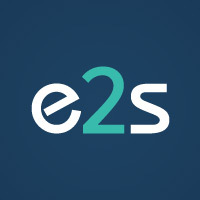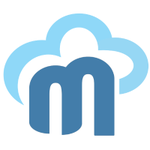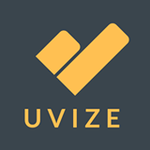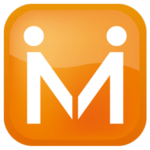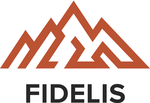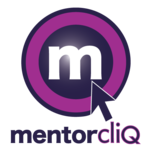Yes, most mentoring software is intended to be accessible from numerous devices and platforms. This means you can use the software on your computer, tablet, or smartphone, independent of operating system. Some software even includes dedicated mobile apps for a more seamless user experience. This enables mentors and mentees to stay connected and engaged regardless of where they are or what device they use.
List of 20 Best Mentoring Software
Tandemploy is a software that is revolutionizing workplace collaboration. Say goodbye to rigid work schedules and hello to flexible job-sharing and dynamic project teams. Keep your employees engaged, boost productivity, and future-proof your business...Read More Tandemploy
e2s Connect is a cloud-based fundraising solution designed specifically for higher education institutions. Our Alumni CRM provides a comprehensive view of alumni activities, enabling a deeper understanding of this crucial group. With e2s Connect, eff...Read More e2s Connect
Online Mentoring is a tool for promoting professional growth, supporting career development for all employees, and fostering diverse talent through personalized guidance and networking opportunities. With our customizable solutions, say goodbye to hi...Read More Online Mentoring
MentorString: a robust platform designed to foster impactful connections between mentors and mentees. With personalized guidance and a wide range of resources, MentorString empowers individuals to maximize their potential in all aspects of life. Join...Read More MentorString
MentorCloud is a mentorship program management platform. Our cutting-edge technology combines artificial intelligence and human knowledge to simplify program administration and foster meaningful mentor-mentee relationships within organizations. With...Read More MentorCloud
Innovative Mentoring Software solution for streamlining your organizations mentoring program. With its user-friendly interface and affordable pricing, our software simplifies program management, increases participant engagement, and ensures efficient...Read More Innovative Mentoring Software
Brancher, a mentoring platform created in Australia with a special emphasis on science. Our platform boasts an impressive 90% satisfaction rate for matches and reduces administrative tasks by up to 80%. We help companies attract and retain top talent...Read More Brancher
Guider - the top choice for effective mentoring programs. Used by clients globally, Guider provides a comprehensive solution for implementing and enhancing impactful mentorship initiatives with impressive returns. With Guider, bid farewell to the cha...Read More Guider
My Coach Office solution for streamlining your coaching business. Our comprehensive software takes care of scheduling, client management, and invoicing, freeing up your time for coaching and growing your business. Say goodbye to overwhelming administ...Read More My Coach Office
Together Enterprise Mentoring - a software designed to enhance career development through mentor-mentee partnerships. Our platform prioritizes informal and peer-based mentorship, fostering a culture of knowledge exchange and teamwork within companies...Read More Together Enterprise Mentoring
Together Mentorship is a software solution for creating and maintaining a successful mentorship program within your company. Set your employees up for success by harnessing the power of mentorship to improve retention and performance. Our user-friend...Read More Together Mentorship
Uvize is an innovative mentorship software that enhances mentorship programs by providing personalized training modules, progress tracking, and efficient communication tools. Its user-friendly interface fosters meaningful relationships and measurable...Read More Uvize
MentorCity - the leading online mentoring platform that enables individuals to connect with mentors in various industries and positions. Organizations such as associations, businesses, and educational institutions rely on this robust platform to mana...Read More MentorCity
Fidelis LRM is a student success solution designed to transform the learning experience. By seamlessly integrating with all existing tools, it provides personalized support and simplifies student services for improved outcomes. With enhanced engageme...Read More Fidelis LRM
Xinspire is a mentoring software solution, designed to simplify program management and enhance participant engagement. Our platform offers a user-friendly interface and a range of features to efficiently integrate and support mentoring initiatives at...Read More Xinspire
Insala Coaching solution for personalized career advancement. Our cutting-edge platform offers tailored coaching tools to enhance performance and foster meaningful professional relationships. Empower your team with customized coaching experiences and...Read More Insala Coaching
Mentorwise is a mentorship software designed for organizations and individuals looking to establish successful mentorship programs. Our intuitive platform offers a wide range of tools, such as task management and progress monitoring, to facilitate th...Read More Mentorwise
Ten Thousand Coffees is a leading talent experience platform that specializes in promoting diversity. With cutting-edge features like seamless connectivity, mentoring, and DEI tools, the platform offers a holistic solution for new employee onboarding...Read More Ten Thousand Coffees
MentorcliQ revolutionizes employee mentoring through SMART matching, training opportunities, and ROI insights. Our integration with HR systems creates a seamless experience for mentors and mentees. Elevate your companys mentoring program with Mentorc...Read More MentorcliQ
Learn More About Mentoring Software
- What Is Mentoring Software?
- What Are The Recent Trends In Mentoring Software?
- Benefits Of Using Mentoring Software
- Important Factors To Consider While Purchasing Mentoring Software?
- What Are The Key Features To Look For In Mentoring Software?
- Why Do Businesses Need Mentoring Software?
- How Much Time Is Required To Implement Mentoring Software?
- What Is The Level Of Customization Available In Mentoring Software?
- Which Industries Can Benefit The Most From Mentoring Software?
- Conclusion
What Is Mentoring Software?
Mentoring software is a technological platform that is specifically intended to support effective mentorship programs within enterprises. It provides a consolidated and effective way to connect mentors and mentees, manage communication, and measure progress. This program improves the mentoring process by making it more convenient and accessible to both sides.
Mentoring software enables users to establish profiles and match mentors and mentees based on criteria such as abilities, expertise, and aspirations. It includes tools for arranging and running virtual or in-person meetings, as well as exchanging resources and creating objectives. This not only saves time, but also ensures that mentorship sessions are effective and focused.
Mentoring software, which includes features such as progress tracking, feedback collection, and reporting, enables companies to assess the effectiveness and impact of their mentorship programs. This information may be used to make better decisions and continual changes, resulting in a more effective and relevant mentorship experience for all stakeholders.
Mentoring software not only benefits mentees in terms of personal and professional development, but it also assists mentors by offering a defined framework and resources for assistance and support. It also develops a feeling of community and collaboration inside the business by allowing mentors and mentees to connect and learn from one another outside of their primary mentoring connection.
Overall, investing in mentoring software can provide significant value to a business by fostering a culture of learning, development, and mentorship. It streamlines the mentorship process, delivers significant data insights, and develops a feeling of community, all of which contribute to the personal and organizational growth and success.
What Are The Recent Trends In Mentoring Software?
Mentoring programs have been shown to improve employee engagement and retention, as well as produce future leaders inside firms. And, as technology advances, mentoring software has become a popular tool for firms looking to streamline their mentoring programs. So, what are the current trends in mentoring software?
1. Artificial Intelligence (AI) Integration: One of the most significant advances in mentoring software is the incorporation of artificial intelligence. Mentoring software backed by artificial intelligence can assist match mentors and mentees based on their skill sets, personalities, and aspirations. It can also make personalized recommendations and insights to mentees to help them grow and thrive.
2. Mobile Access: As remote work has grown in popularity, mentoring software must now include mobile capabilities. Mentees and mentors can access the software via smartphones or tablets, allowing them to interact and converse at any time and from any location.
3. Gamification: Another trend in mentoring software is the use of gamification to make mentees' learning and development experiences more engaging and exciting. This can include incentives and acknowledgment for achieving goals, performing activities, and actively engaging in the program.
4. Video And Virtual Reality (VR): Many mentoring applications now include video and VR, allowing mentees and mentors to connect face-to-face even if they are in different locations. This can improve the mentoring experience, making it more personalized and impactful.
5. Data Analytics: Data analytics is another growing topic in mentoring software. Organizations can utilize data to track and measure the efficacy of their mentoring initiatives. It can also help identify areas for growth for both mentees and mentors, ensuring that the program produces outcomes.
6. Platform Modification: To meet the specific needs of different businesses, several mentoring software providers now provide platform modification. This allows organizations to customize the software to their own program goals and add their own branding, resulting in a more personalized experience for their employees.
Benefits Of Using Mentoring Software
Mentoring software is a novel instrument that has transformed the world of mentoring and professional development. With its simple design and advanced capabilities, it has become a popular choice for businesses and individuals wishing to improve their mentoring programs.
Here are the main advantages of using mentoring software:
1. Centralized Platform: Mentoring software creates a centralized platform for mentors and mentees to connect, cooperate, and track progress. This eliminates the need for different tools and platforms, allowing mentorship programs to be managed more efficiently and effectively.
2. Customizable To Your Needs: When it comes to mentoring, one size does not fit all, and mentoring software recognizes this. It provides customization possibilities, allowing businesses to personalize the program to their own mentoring requirements and goals. Everything, from program structure to mentor-mentee matching, is customizable.
3. Improved Mentor-Mentee Matching: Mentor-mentee matching is an essential component of any effective mentoring program. With mentoring software, the process is automated and data-driven, resulting in the greatest potential matches based on talents, interests, and aspirations. This creates more meaningful and fruitful mentoring connections.
4. Real-Time Progress Tracking: Mentoring software allows mentors and mentees to track their progress in real-time. This enables users to track their progress, set goals, and stay on track in their mentoring journey. It also allows program management to more easily assess the program's efficacy and make required modifications.
5. Resource Library: Mentoring software includes a built-in resource library with a variety of materials, including articles, videos, and templates, to help mentors and mentees learn. This reduces the need for them to look for resources elsewhere, saving both time and effort.
6. Data And Analytics: Mentoring software collects and analyzes data to provide useful insights into program effectiveness. It identifies opportunities for improvement and emphasizes effective mentoring connections. This data can also be utilized to plan future mentorship programs and calculate ROI.
7. Increased Mentoring Participation: Mentoring software makes it easier for mentors and mentees to engage in the program by streamlining communication and scheduling. This increases participation rates, resulting in a more successful mentoring program.
Important Factors To Consider While Purchasing Mentoring Software?
When it comes to selecting mentoring software, there are a few key elements to consider in order to make an educated purchase. As a buyer, you must understand the important features and functionalities that will best assist your mentorship program.
We'll look at the most important variables to consider while selecting mentoring software.
1. User-Friendly Interface: The most important consideration is the software's usability. A complex and difficult-to-use interface might create unneeded barriers for mentors and mentees, resulting in low adoption rates. Look for software with a simple and straightforward interface, allowing users to explore and use the platform without any technical knowledge.
2. Customizability: Each business has distinct mentoring requirements and goals. As a result, it is critical to acquire software that can be adjusted to meet your individual needs. This includes the option to design individualized mentorship programs, customize communication and feedback tools, and track progress depending on your organization's goals.
3. Interoperability: Another important thing to examine is the software's interoperability with your current systems and tools. Mentoring software should be easily integrated with your HR management, learning management, and performance evaluation systems to create a smooth and efficient workflow for your mentors and mentees.
4. Security And Data Privacy: Because mentoring requires secret talks and sensitive information, it is critical to select software that prioritizes security and data privacy. Look for features like data encryption, role-based access control, and secure storage to safeguard the personal and professional information exchanged on the platform.
5. Analysis And Reporting: To measure the performance of your mentoring program, you must have access to the software's sophisticated analytics and reporting options. This will allow you to track success, identify areas for development, and make data-driven decisions to ensure the continued growth of your program.
6. Mobile Accessibility: In today's fast-paced environment, having mentorship software that can be accessed on the go is increasingly crucial. Look for software that includes a mobile app or a responsive website that allows mentors and mentees to communicate and engage with one another at any time and from any location.
Taking these essential elements into account will allow you to locate mentoring software that meets the needs and priorities of your firm. It will not only streamline your mentoring program, but also improve your employees' learning and development chances. So, conduct your research, study reviews, and select software that meets your organization's specific needs.
What Are The Key Features To Look For In Mentoring Software?
Mentoring is an effective tool for professional growth and development, and with the increase of remote work and virtual learning, mentoring software has become a crucial resource for firms looking to aid this process. But with so many options on the market, it might be difficult to choose the ideal one for your needs.
To help you make an informed decision, these are the essential things to look for when selecting mentoring software.
1. Customizable Matching Algorithm: Mentoring software primarily matches mentors and mentees based on their goals, interests, and histories. Look for a platform that has a configurable matching algorithm that considers aspects such as industry, skills, and personality attributes to ensure the ideal mentor-mentee match.
2. Communication And Collaboration Tools: Effective communication is essential for a successful mentoring relationship. The software should include communication features such as video conferences, chat, and discussion boards to help mentors and mentees connect and engage effortlessly. Furthermore, collaboration tools such as document sharing and goal monitoring can improve the mentoring process.
3. Goal-Setting And Progress Tracking: Setting clear goals is critical for a successful mentoring relationship. A effective mentoring software should enable mentors and mentees to establish and track goals throughout the program. This feature not only keeps mentees engaged and motivated, but it also enables mentors to provide essential feedback and assistance.
4. Resource Library And Training Materials: Mentoring software should have a comprehensive resource library that includes relevant articles, videos, and training resources for mentors and mentees. This tool can help mentees build new skills and information, while mentors can utilize it to improve their mentoring skills and keep up with industry trends.
5. Data & Analytics: Data and analytics are crucial in determining the performance of a mentorship program. Look for software that gives real-time data and statistics on mentor-mentee relationship progress, objective achievement, and user engagement levels. This data can help organizations make data-driven decisions to improve their mentoring programs.
6. Integration With Existing Software: To make your mentoring program more efficient, consider using software that integrates with your existing resources. This eliminates the need for mentees and mentors to switch between several platforms, allowing them to access all relevant information and resources in a single location.
7. Security And Privacy Features: When investing in software, security and privacy should be primary priorities. Look for a platform that has data encryption, two-factor authentication, and user access control to safeguard confidential information exchanged by mentors and mentees.
Why Do Businesses Need Mentoring Software?
Businesses are continuously seeking methods to remain competitive and improve their operations. Mentoring programs, which link experienced employees with those who are new to the firm or industry, are an excellent way to do this. However, running and maintaining an effective mentoring program can be a difficult endeavor. Here's when coaching software comes in handy. Mentoring software is a digital platform that automates and improves the entire mentoring experience.
This software improves the mentoring program's efficiency and effectiveness by matching mentors and mentees, recording progress, and measuring impact. It serves as a centralized portal for mentors and mentees to communicate, share information, and establish goals. One of the primary advantages of mentoring software is that it saves time and effort for both mentors and mentees.
The software allows you to plan meetings, share documents, and provide comments, eliminating the need to manually organize logistics and paperwork. This results in greater productivity and a more efficient mentoring experience for all parties involved. Another important feature of mentoring software is its data-driven approach. It enables organizations to monitor the progress and performance of their mentoring programs using a variety of metrics and statistics.
This information can provide useful insights into the program's efficacy and assist identify areas for improvement. With the continually changing business landscape, having access to data-driven results is critical to ensuring that the mentoring program remains current with the changing demands of the organization. Mentoring software encourages people to learn consistently and continuously.
Mentees can continuously improve their skills and knowledge thanks to personalized development plans and access to a variety of tools. This not only benefits the mentees but also improves the company's overall growth and success. In addition to these advantages, mentoring software promotes a sense of community inside the firm. Mentors and mentees can meet and collaborate with people they would not have met otherwise, thanks to features like forums and discussion boards. This can result in a more engaged and cohesive staff, affecting both the company's culture and financial line.
How Much Time Is Required To Implement Mentoring Software?
The time required to install mentoring software varies based on a number of factors, including your organization's size and complexity, the functionality and customization choices necessary, and the quality of support supplied by the software vendor. On average, the implementation procedure can last from a few weeks to a few months. This covers initial setup, data migration, system integration, and user training.
Some mentoring software providers give a quick and easy self-service setup that may be done in hours or days, whilst others may necessitate more complex customization and configuration, which may take longer. To achieve a seamless and timely installation, you must properly express your requirements and timeline to the software vendor.
Furthermore, the time necessary for implementation can vary depending on the level of commitment and dedication from your organization. This could involve investing resources to help with the setup and guaranteeing active participation from mentors and mentees. Overall, it is recommended that you plan and commit adequate time for the adoption of mentoring software to ensure a successful and seamless transition for your firm.
What Is The Level Of Customization Available In Mentoring Software?
When selecting mentoring software, it is critical to understand the level of flexibility available to match your individual needs and objectives. The extent of customization varies amongst software alternatives, but the majority include a variety of customizable elements to improve the mentoring experience. One of the most fundamental customizations offered in mentoring software is the opportunity to personalize the platform to your organization's branding.
This includes color schemes, logos, and other visual aspects that help mentors and mentees have a more customized and professional experience. Furthermore, many mentoring software solutions allow you to customize the mentor-mentee matching process. This can include the ability to manually match couples based on particular criteria or to let the software algorithm do the matching.
Some sites also include different matching alternatives, such as one-on-one, group, or peer-to-peer mentoring. Another feature of customisation is the opportunity to tailor the mentoring program to the exact aims and objectives of your firm. This can include designing personalized learning routes, establishing specific milestones and goals, and using unique tools and materials.
Furthermore, some mentoring software provides customisable reporting features for monitoring and analyzing the mentoring program's impact and progress. This can assist adapt future mentoring sessions and monitor the program's overall success. Finally, certain advanced mentoring software options allow you to customize the communication features. This can involve personalized messaging, scheduling and tracking one-on-one or group meetings, as well as building discussion boards and virtual events.
Which Industries Can Benefit The Most From Mentoring Software?
Mentoring software is a useful tool that can help a variety of businesses. Its numerous features and adjustable capabilities make it an invaluable resource for any firm seeking to improve employee development and succession planning.
We'll look at which sectors can profit the most from deploying mentoring software.
1. Corporate Sector: In today's fast-paced and competitive business environment, mentoring software can assist firms in cultivating a culture of continuous learning and development. Employees can receive tailored guidance and support from senior executives by using a platform for mentorship programs, resulting in greater work satisfaction, retention, and productivity.
2. Education Sector: Mentoring software has also been shown to be quite beneficial in the educational setting. With the advent of remote learning and virtual classrooms, educators can use software to foster mentor-mentee connections between students and teachers. Students can benefit from more individualized learning, academic support, and career guidance.
3. Non-Profit Organizations: Non-profit organizations frequently rely on volunteers and have limited resources, making it difficult to give personalized support to their staff and volunteers. Mentoring software can help to close this gap by connecting employees with experienced mentors who can offer guidance, training, and professional development opportunities.
4. Healthcare Sector: The healthcare industry is always changing, thus it is critical for healthcare professionals to keep current and broaden their knowledge. Mentoring software facilitates peer-to-peer learning by connecting healthcare workers with mentors who may share their knowledge and experience, ultimately leading to better patient care.
5. Technology Companies: With the ever-changing environment of technology, it is critical for businesses to maintain a strong learning and development program for their staff. Mentoring software can assist technology firms in delivering targeted learning opportunities, upskilling personnel, and encouraging career advancement inside the organisation.
Conclusion
To summarize, investing in mentoring software is a sensible investment for any company or organization trying to improve employee development, increase productivity, and cultivate a positive work environment. Using the proper mentoring software allows you to efficiently connect mentors and mentees, track progress, and give important resources for a successful mentoring program.
In this buyer's guide, we've discussed the essential characteristics to look for in mentoring software, such as compatibility, customization choices, mentor-mentee matching, and reporting capabilities. When picking mentoring software, you must consider your organization's specific objectives and goals, as there is no one-size-fits-all option.
Furthermore, we've highlighted some of the best mentoring software solutions on the market, including Chronus, MentorcliQ, and Everwise, to help you narrow down your options and make an informed decision. These platforms include a variety of features and connectors to ensure a seamless and productive mentoring experience for all users.
Finally, remember to include key stakeholders and solicit feedback from possible mentors and mentees during the decision-making process. By taking the time to properly choose the best mentoring software, you are investing in the growth and success of your employees and the organization as a whole. We hope this guide has provided you with useful information and tools to help you select the finest mentoring software for your needs.
Mentoring Software FAQ's
Can Mentoring Software Be Accessed Across Multiple Devices And Platforms?
Is Mentoring Software Future-Proof And Adaptable To Emerging Technologies Like AI, Blockchain Or IoT?
Yes, mentoring software is intended to be future-proof and adaptable to new technologies like AI, blockchain, and IoT. Mentoring software, like other technologies, is continually evolving. Mentoring software's versatility and customization options make it easy to add new technologies and features to fulfill the demands of both mentors and mentees. This ensures that the software is still relevant and successful in an ever-changing corporate environment.
Is There A Free Trial Offered To Assess Mentoring Software Before Committing?
Yes, many mentoring software companies provide free trials so that potential clients can evaluate the product before committing to a purchase. These trials are usually limited in duration and allow users to test the software's features and operation. Take advantage of free trials to check that the program suits your specific requirements and goals. In addition to free trials, some suppliers may provide free demos or webinars.
Does Mentoring Software Offer Data Security Features And Meet Regulatory Compliance Standards?
Yes, most reputable mentoring software platforms have robust data security safeguards to protect all sensitive information shared between mentors and mentees. They frequently employ encryption, access controls, and data backup processes to prevent illegal access to data. In addition, many mentoring software vendors follow regulatory compliance requirements like as GDPR, CCPA, and HIPAA to secure personal data and meet industry-specific rules.
Can Mentoring Software Integrate Seamlessly With Existing Tools And Platforms?
Yes, mentoring software is designed to work easily alongside existing tools and platforms. This creates a more efficient and simplified experience for both mentors and mentees. Depending on the platform, it can interact with popular apps such as Slack, Zoom, and Google Calendar, making meeting scheduling and communication easier. This integration also enables quick access to relevant information and progress tracking.


